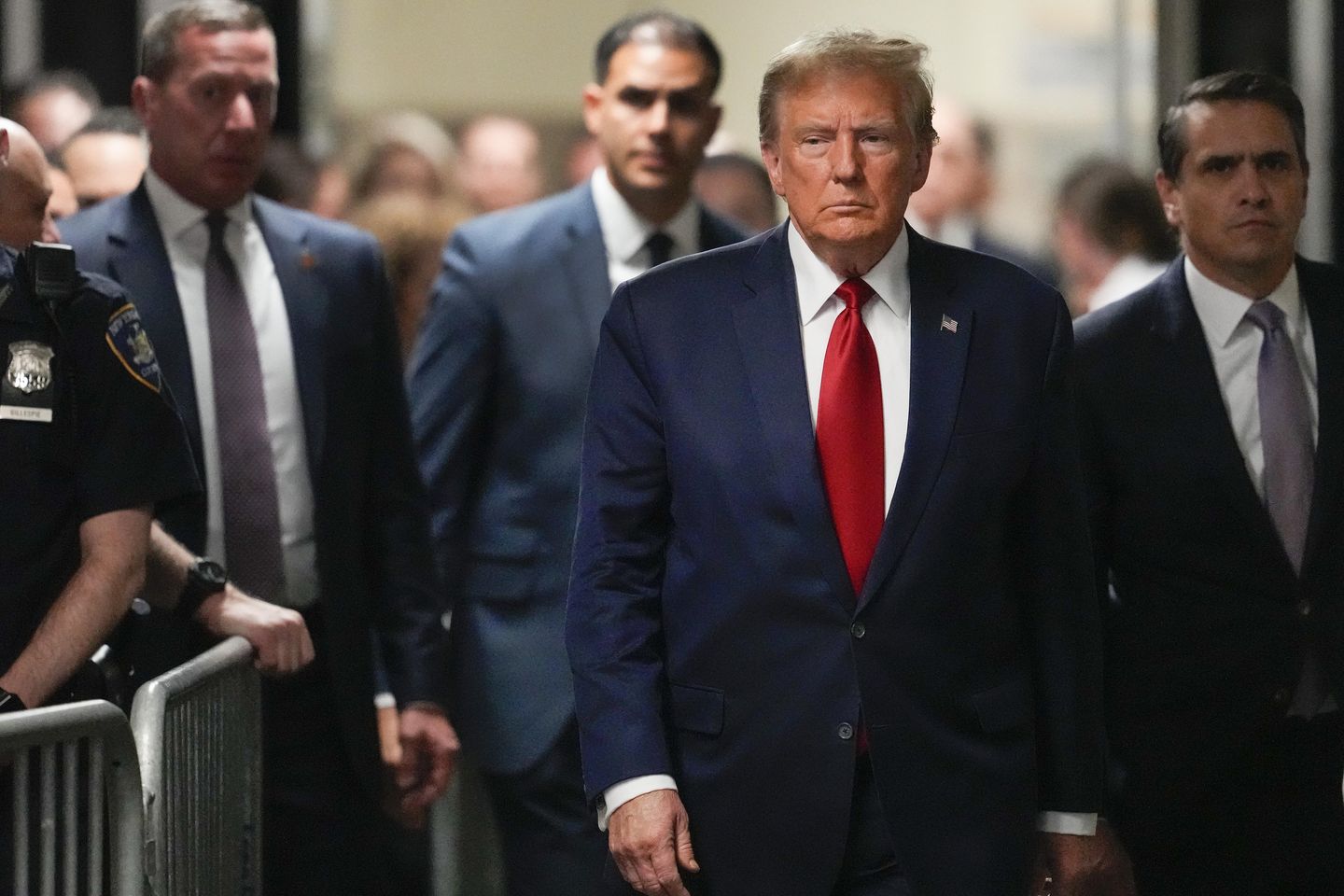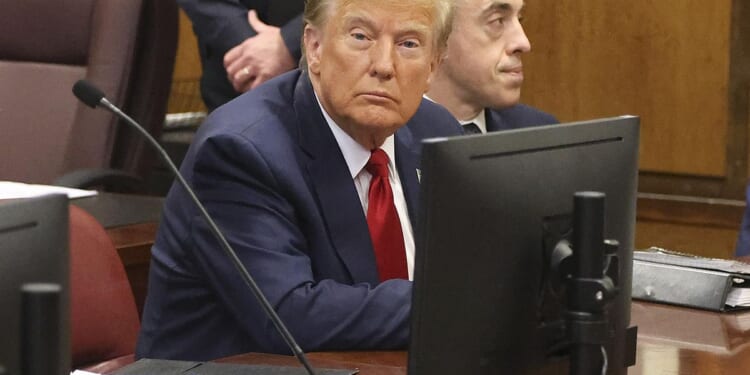
A New York judge on Thursday denied former President Donald Trump’s attempt to dismiss an indictment alleging he falsified records to hide hush money payments and said the trial is set to begin on March 25.
Judge Juan Manuel Merchan said he opted to go ahead after speaking with the judge in Mr. Trump’s now-delayed federal election interference case in Washington.
The decision means Mr. Trump, the GOP front-runner for president, will face a Manhattan jury in the heat of the GOP primary season and could run in November as a convicted felon.
Mr. Trump watched from the courtroom gallery, opting to see the proceeding firsthand instead of heading to Georgia for a pivotal hearing in a separate case that accuses him of racketeering offense for his efforts to overturn President Biden’s 2020 win in the southern state.
Mr. Trump faces trial in New York on charges he falsified business records to conceal hush money payments to porn star Stormy Daniels, Playboy model Karen McDougal and a doorman who claimed Mr. Trump had a child out of wedlock.
Prosecutors allege the payments were funneled through Mr. Trump’s attorney-turned-fixer, Michael Cohen, in a bid to conceal bad press ahead of the 2016 election. The most salacious aspect of the case involves Ms. Daniels, whose real name is Stephanie Clifford and says she had a sexual encounter with Mr. Trump in 2016.
The former president denies the affair.
Former Manhattan District Attorney Cyrus Vance Jr. declined to push the case but current DA Alvin Bragg took it up and presented evidence to a grand jury.
Mr. Trump faces 34 felony counts of falsifying business records in the indictment. He pleaded not guilty and says the allegations are part of a Democratic witch hunt to hurt his presidential campaign.
“It is completely election interference to say ‘you are going to sit in this courtroom in Manhattan,’” Trump defense lawyer Todd Blanche said Thursday.
Persons convicted of falsifying business records rarely receive serious jail time, if any.
The allegations in the indictment stem from actions in 2016 and have been aired out in the media for years, so some experts say the case will not have the same impact on voters as pending trials that pivot on Mr. Trump’s push to overturn the 2020 election results and attempts to keep government records at his Mar-a-Lago estate.
“Of all of the legal tangles that have enveloped Mr. Trump, this is the most esoteric,” said Ross Baker, a politics professor at Rutgers University. “This is likely to be seen as a tempest in a teacup compared to [allegations of] purloined classified documents and fomenting insurrection.”
Mr. Trump watched proceedings in New York while an Atlanta-based judge kicked off a two-day hearing on whether Fulton County District Attorney Fani Willis should be disqualified from the election-related racketeering case against Mr. Trump and 18 co-defendants.
One co-defendant, Michael Roman, filed a bombshell motion alleging Ms. Willis benefited from the prosecution because she hired Mr. Wade, a lawyer, to work on the case and then took luxury trips with him in an apparent romantic relationship.
Ms. Willis acknowledged the relationship in a formal response but said that was no reason to disqualify her, citing the lack of a financial benefit.
The hearing got off to a rocky start, with lawyer Terrance Bradley declining to answer questions about interactions with Mr. Wade, his former law partner.
A lawyer for Mr. Roman, Ashleigh Merchant, subpoenaed Mr. Bradley to pry loose information about when Mr. Wade and Ms. Willis began their relationship, hoping to establish it pre-dated Mr. Wade’s enlistment to the Trump investigation.
Mr. Bradley said he noticed in 2018 that Mr. Wade was not wearing his wedding ring. They discussed Mr. Wade’s pending divorce and the parameters of Mr. Bradley representing him in the proceedings.
Mr. Bradley tried to avoid answering questions about his deliberations with Mr. Wade, citing advice he got from the state bar about attorney-client privilege — and forcing the court to grapple with the scope of the privilege.
• This article is based in part on wire service reports.












